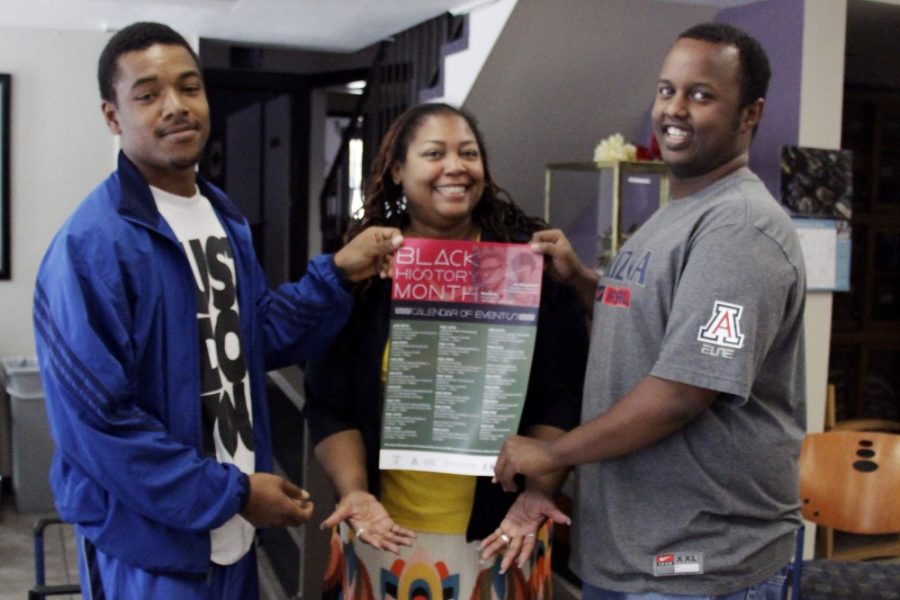An earlier version of this article incorrectly stated that the dinner and dialogue series was with the Arizona Students’ Association. The Daily Wildcat regrets the error.
The UA is honoring Black History Month with several culturally enriching events.
April Petillo, community facilitator and graduate assistant for the African American Cultural Center, said she advocates for a cultural experience for her students.
“The experience of blackness is something that happens regardless of the date on the calendar,” Petillo said. “It is helpful to see what that experience has meant over time, but it is also important to be expansive in our discussions about the approach to the black experience.”
There is a calendar of events to celebrate Black History Month in the Dr. Martin Luther King Jr. Student Center, such as a dinner and dialogue series with the African American Students’ Association and Black Student Union Association, movie screenings of “12 Years A Slave” at the Gallagher Theater and Student Panel Discussions on Civil Rights in the Student Union.
“There is more to the black experience for those who identify themselves as black or other cultural roots than Martin Luther King, Jr., Malcolm X or even Nelson Mandela,” Petillo said. “In this time of Obama’s presidency, Black History Month is a time to understand that we are not a raceless, color-blind society.”
Maria Moore, also a program director for the African American Student Affairs, said she is optimistic about providing learning opportunities for African-American students, allowing them to see themselves in both black history and contemporary issues and apply those tools to their own lives and struggles.
“Heritage months are when anybody can learn about different people and how they overcame their challenges,” Moore said.
Hanad Farah, a sports management graduate student, said he believes celebrating cultural awareness in ways like Black History Month has made it easier for other heritages to express their cultures, too.
“This month is a chance for not only black people, but people of all cultures to see the progress we’ve made as a whole, coming from a separate society and being inclusive,” Farah said.
Jimaral Marshall, a freshman studying Africana studies and sociology, said he sees the importance of the cultural awareness Black History Month brings.
“This month is a chance to acknowledge important black people in history that weren’t talked about in your previous classes … those who didn’t have a light shone on them,” Marshall said.
Farah said Black History Month is a step in the right direction, but it’s hard to keep the momentum of inclusivity going.
“If you catch fireflies, there’s a bright light with lots of energy,” Farah said. “That’s the month. But when you let them go, it all just disappears and gets dark again. You get right back to where you started.”
It is important for students to keep a sense of awareness, Marshall said, because there’s always something more to be learned.
“It is very important to understand your culture,” he said. “It is your chance to take up responsibility. The less you know about yourself, the less self-defined you are.”









